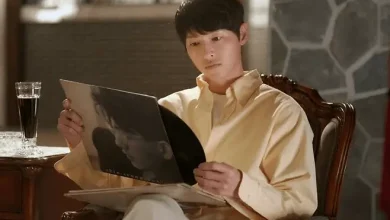Why “Hospital Playlist” Spin-Off “Resident Playbook” Disappointed K-Drama Fans Despite Strong Ratings?
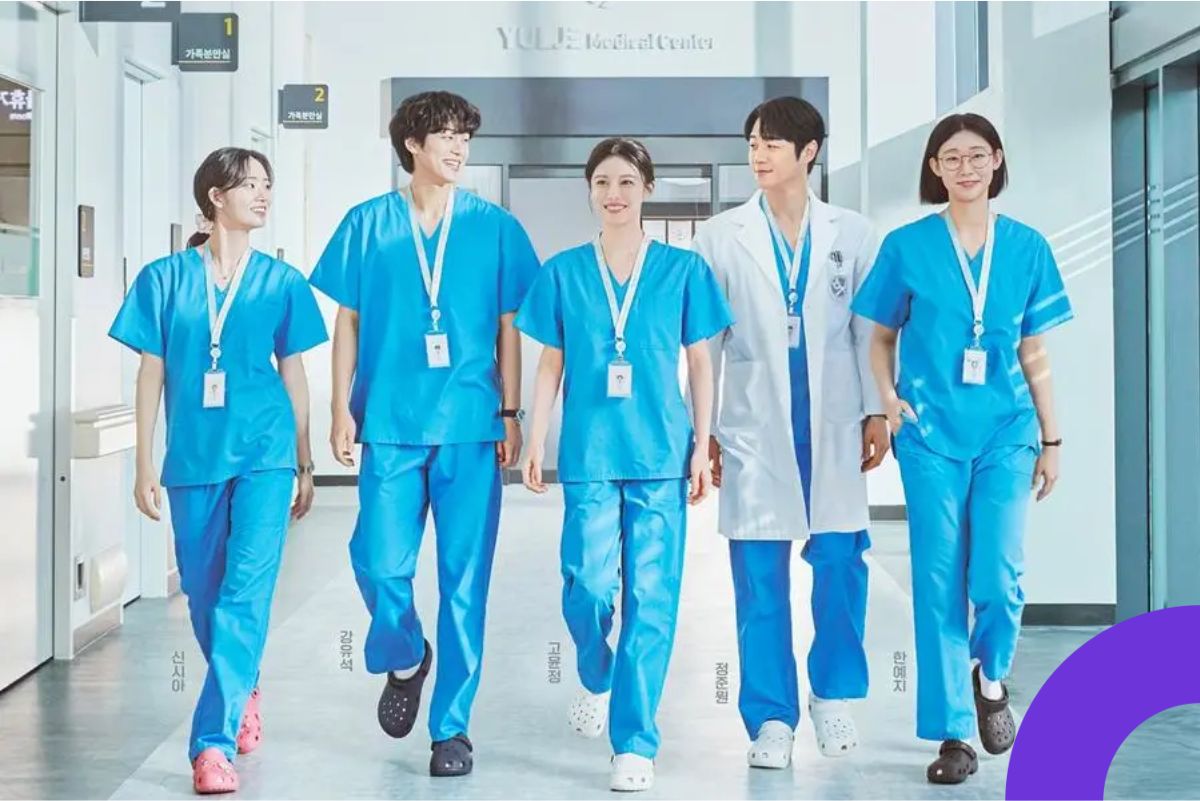
Initially built on a premise that seemed full of promise, Resident Playbook quickly fell into an unexpected pit of blandness.
Set in the Obstetrics and Gynecology department of Yulje Medical Center’s Jongno branch, the series follows four young residents navigating the trials of becoming true medical professionals.
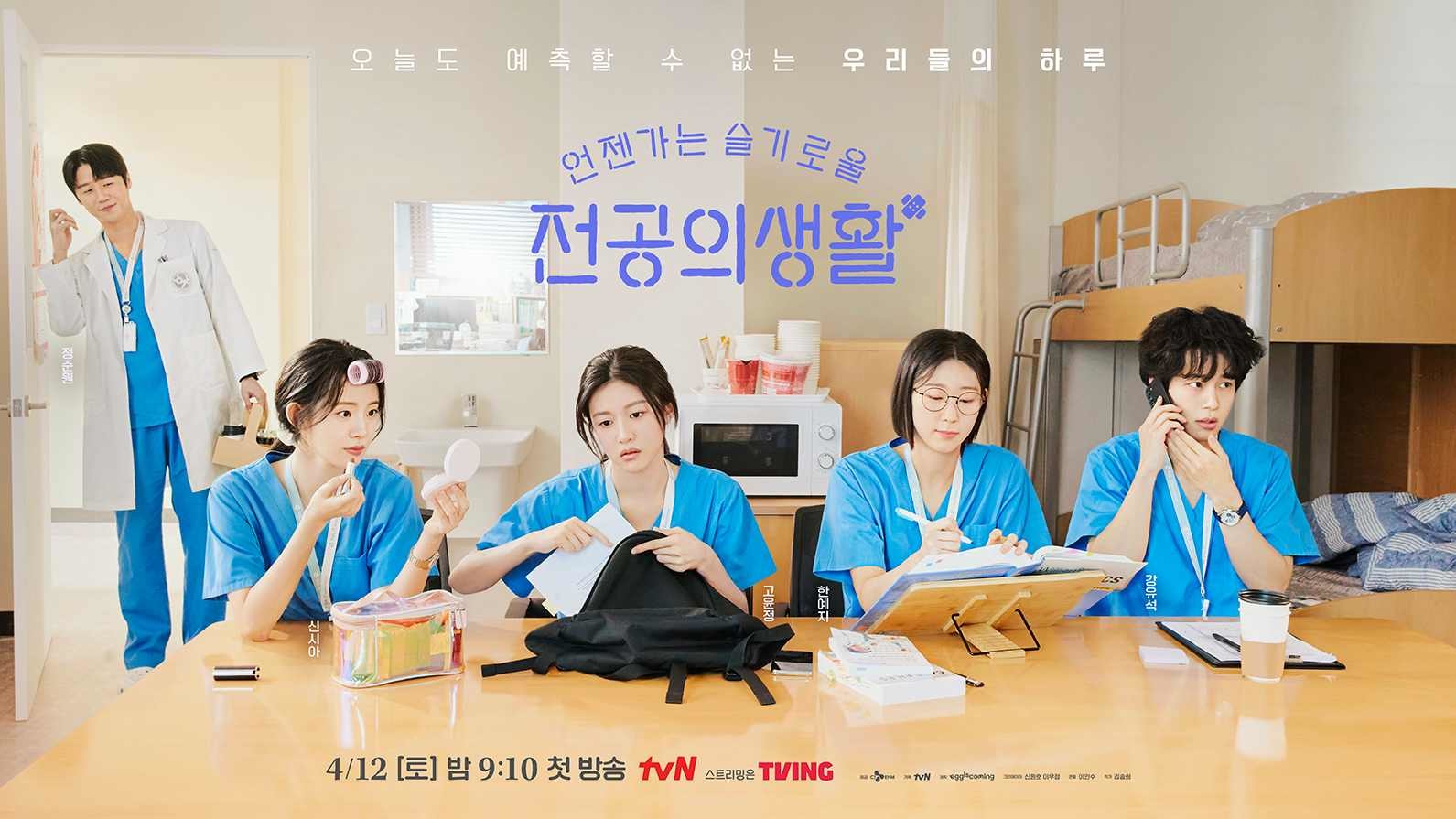
Spin-Off Full of Promise That Quickly Faltered
The main characters, on paper, each offer intriguing traits:
- Oh Yi-young (Go Yoon Jung), a privileged “rich kid” who once quit medical school and returns burdened with heavy debt.
- Pyo Nam-kyung (Shin Si-ah), a competitive former classmate of Yi Young.
- Sa-bi (Han Ye-ji), a talented student with poor social skills that often discomfort patients.
- Jae-il (Kang You-seok), a former K-pop idol who abandons stardom to pursue a career in medicine.
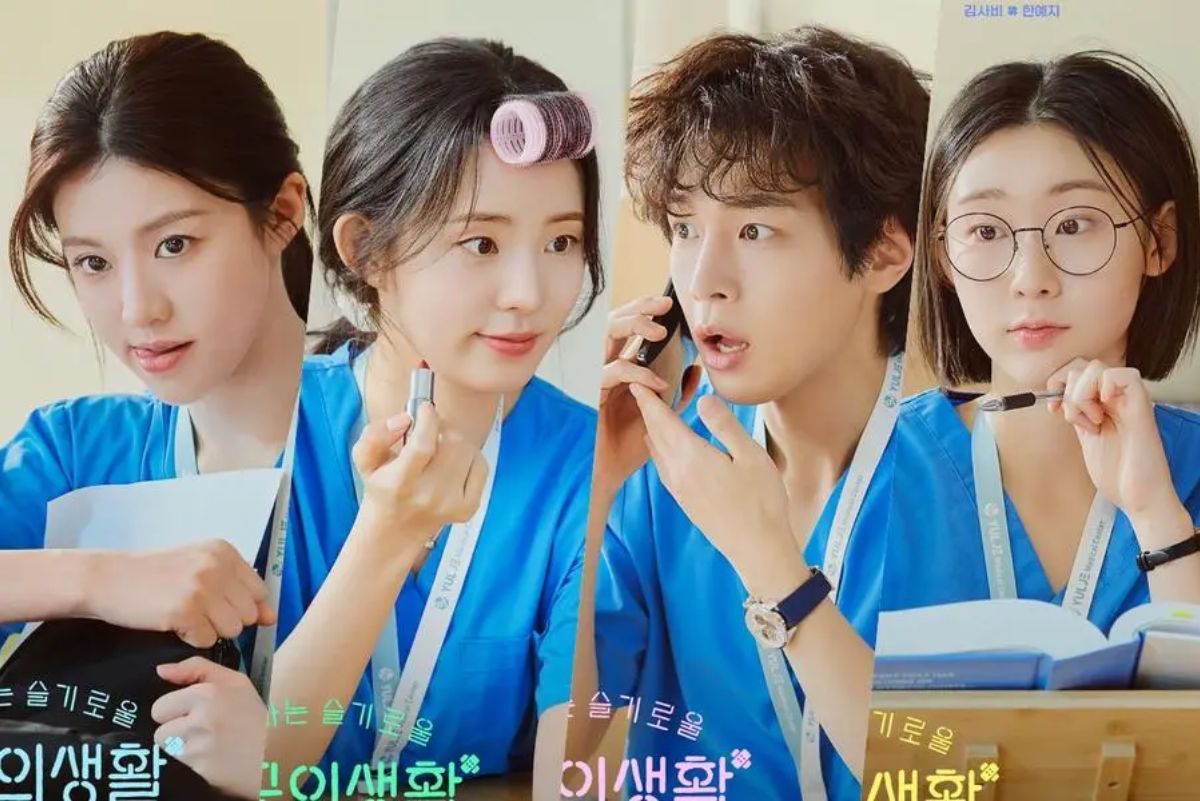
What initially appeared to be a well-balanced mix of diverse personalities meant to portray a meaningful journey of growth and emotional depth hallmarks of Korean medical dramas soon reveals itself as lacking.
From early episodes, Resident Playbook begins to expose major weaknesses:
- The storytelling lacks drama and climax, rendering the narrative emotionally flat and disengaging.
- Medical scenarios, rather than exploring professional stress or emotional tolls, feel repetitive and sanitized devoid of conflict or impact.
- Conversations among characters fail to reveal emotional complexity, instead circling aimlessly with no memorable or meaningful development.
- The series’ core theme, the journey of loving one’s profession, is portrayed in a lifeless, uninspired manner, lacking any internal crisis or dramatic turning points.
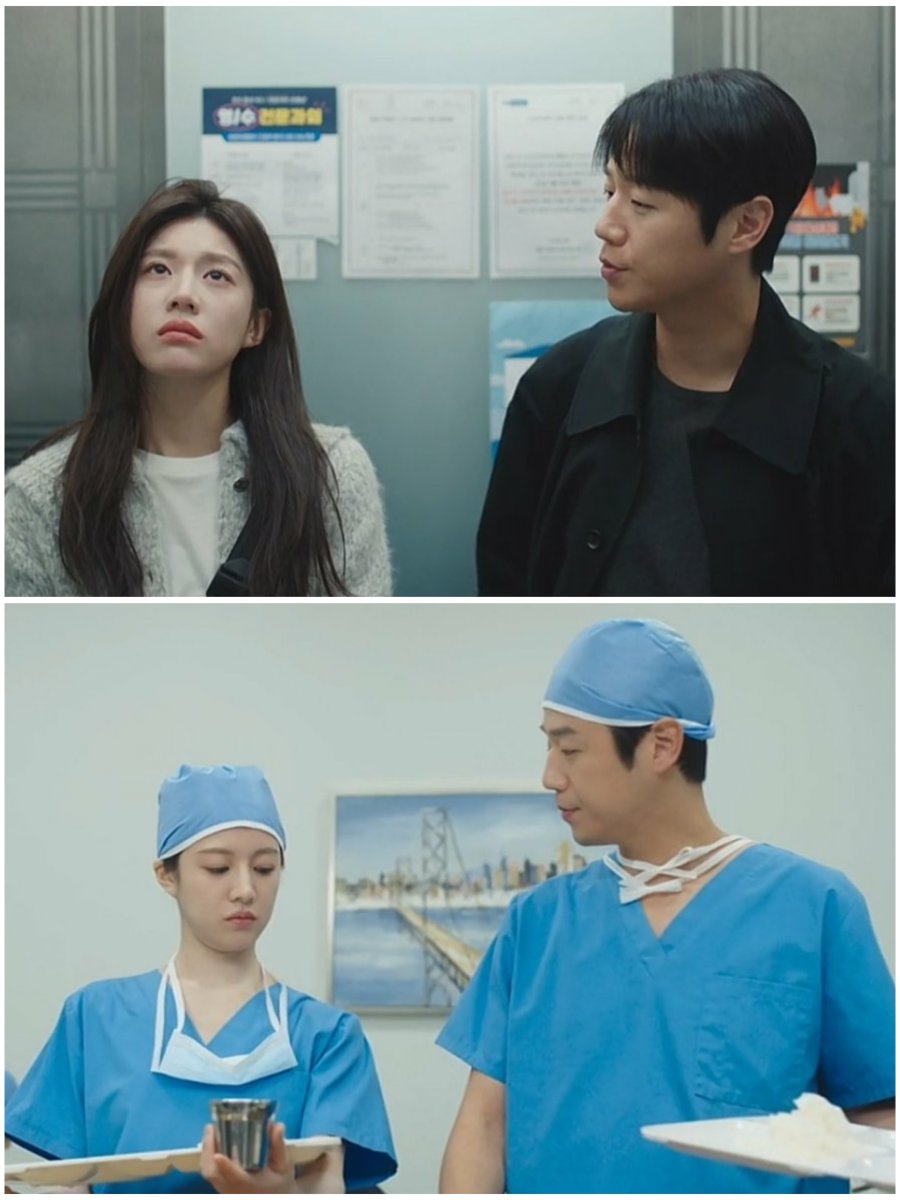
The result is a medical drama stripped of emotional impact devoid of ethical dilemmas, urgent emergency scenes, or poignant moments of growth.
Characters Without Depth, Conflicts Without Weight
Supporting characters, which could have enriched the narrative from senior doctors and nurses to patients are reduced to background figures with no emotional or narrative weight. They appear merely to fill space rather than influence or challenge the main characters in any substantial way.
The only character introduced with a potential for real conflict senior doctor Myeong Eun-won (Kim Hye-in) is portrayed so awkwardly and one-dimensionally that her presence only disrupts the flow. Her negative energy is unmotivated, lacking psychological depth or a convincing character arc.
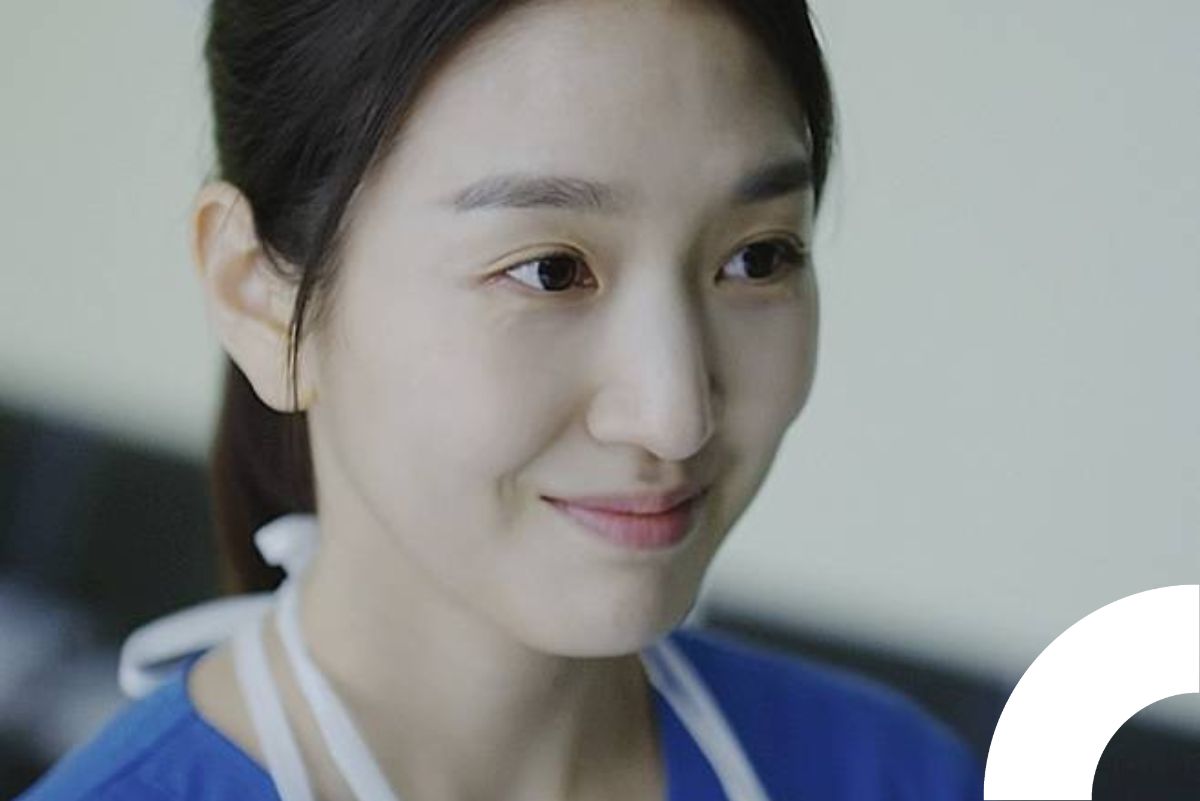
Equally disappointing is the romantic subplot between Yi Young and Do Won (Jung Joon Won). Intended to provide emotional substance, the relationship feels forced and unconvincing. Despite intimate scenes, their chemistry is non-existent. Conversations, gazes, and expressions feel hollow and lacking authenticity, rendering the romance implausible.
The show’s cast, despite individual promise, fails to compensate for the weak script. The core quartet who should have brought youthful energy and grounded emotion come across as awkward and disconnected. Despite varied backgrounds and personalities, their portrayals are flat and indistinct.
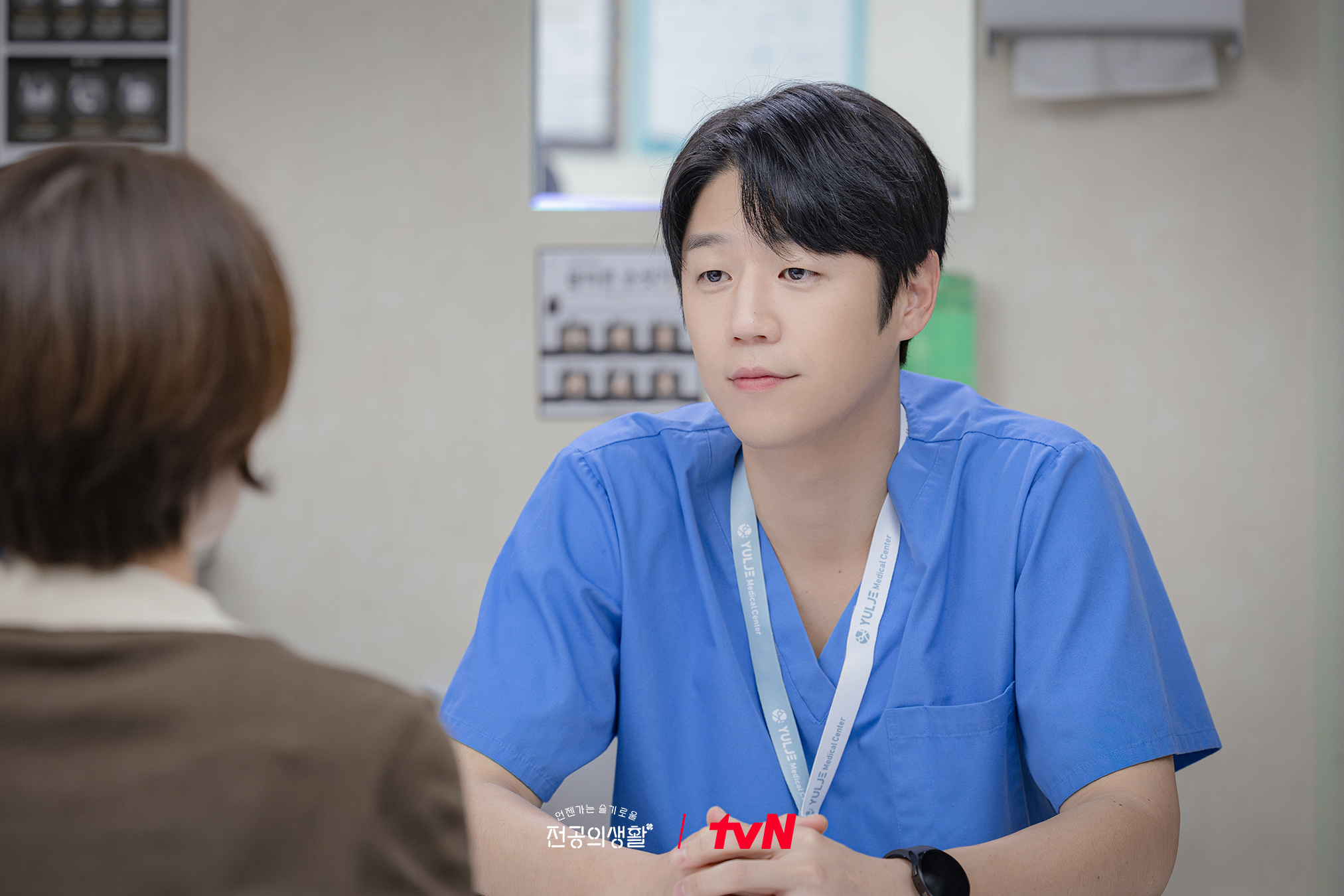
Of particular concern is Go Youn-jung’s portrayal of Yi Young, which falls well short of expectations. Despite prior success in roles in Alchemy of Souls and Moving, her performance here lacks depth. As a character who was written with emotional complexity, Go’s safe and muted acting fails to convey internal conflict, making Yi Young feel lifeless and emotionally distant.

Supporting characters such as Nam-kyung, Sa-bi, and Jae-il fare no better. While their stories could have added layers to the narrative, they suffer from a lack of emotional progression, turning their dialogue into mechanical line readings. Even scenes that should have evoked strong emotions—professional failures, patient loss, internal conflicts are rushed and underdeveloped.
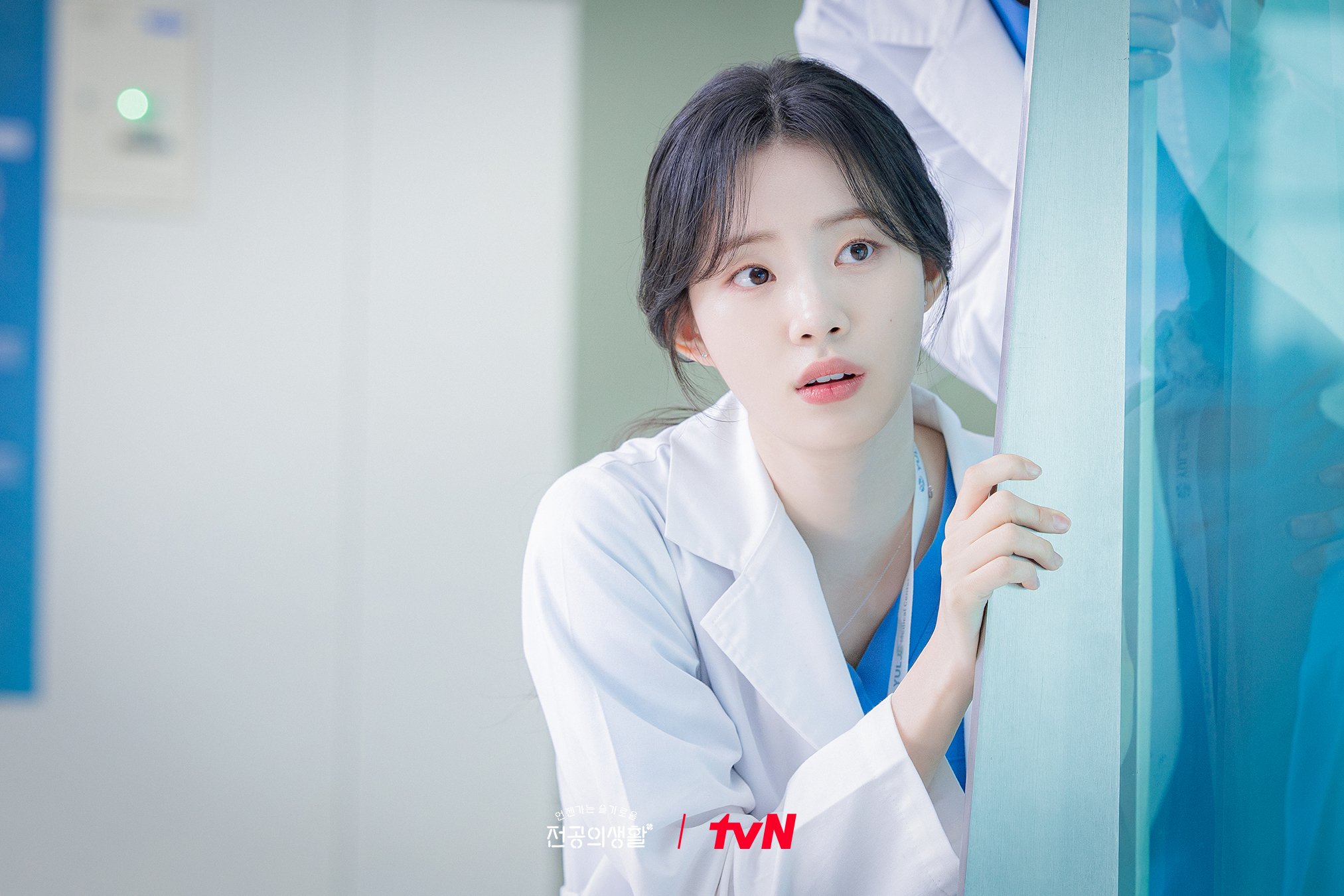
The notable exception is Jo Do-won (Jung Joon Won), whose calm, nuanced performance stands out. He brings subtle emotional depth to his scenes, especially those involving patients. However, his stable presence cannot salvage the chemistry with Go Youn-jung, as their pairing continues to feel mismatched and emotionally distant.
The Surprising Impact from the Old Cast Members
The casting although daring in selecting new talents raises questions about whether the production team prioritized individual profiles over cohesive ensemble chemistry.
Many viewers admitted that the only truly engaging moments were the brief appearances by familiar characters from Hospital Playlist Ik-jun, Seok-hyung, Song-hwa whose limited screen time managed to deliver more emotional resonance than the leads over an entire season.
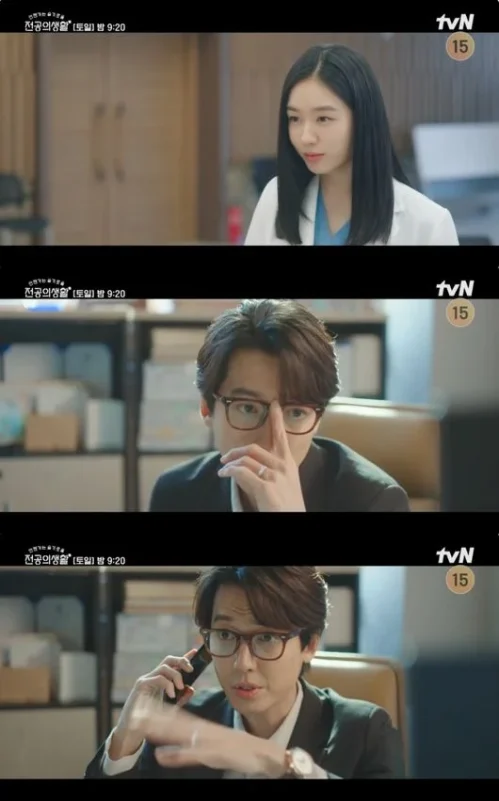
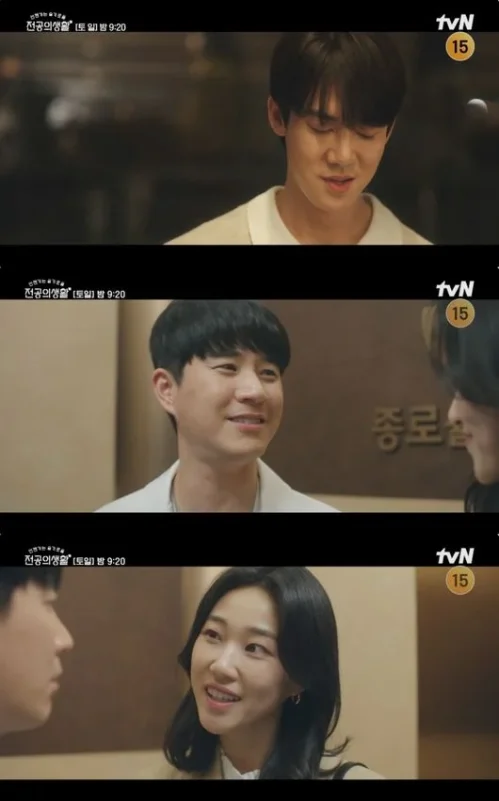
In retrospect, Resident Playbook missed a golden opportunity to stand as a compelling, emotionally resonant spin-off. Rather than confidently forging its own identity, it remains overly dependent on Hospital Playlist’s formula, mimicking its tone and structure while lacking originality and emotional substance. The show opts for safety over depth, offering drawn-out dialogue and sanitized hospital scenes instead of authentic tension or moral complexity.
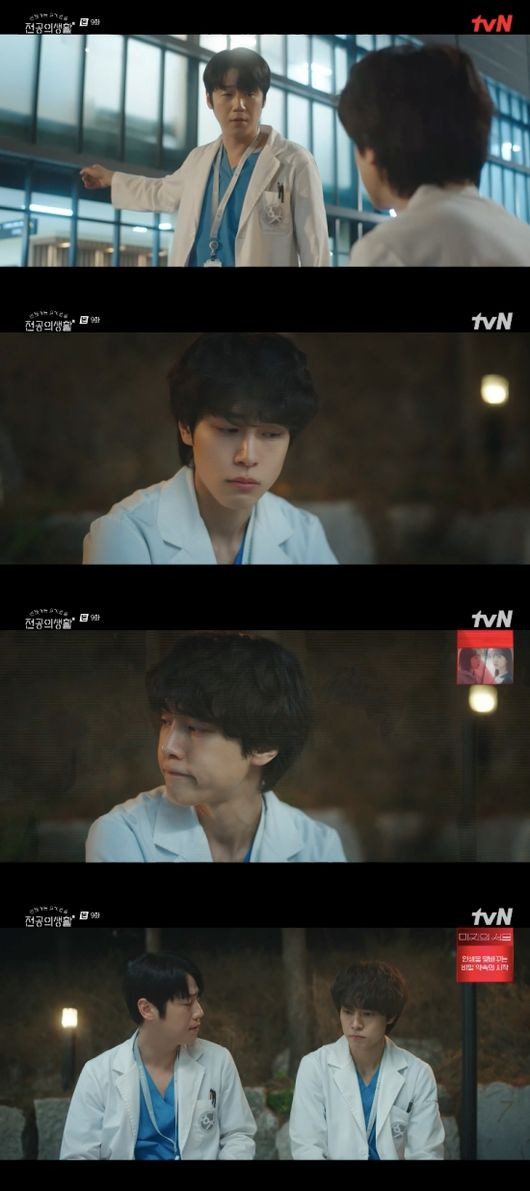
What made Hospital Playlist beloved wasn’t just its medical setting or musical interludes—it was the sincerity of its characters, their emotional imperfections, and the deeply human choices they faced. Resident Playbook, unfortunately, only replicates the surface while missing the emotional core.
Cameos, Ratings, and the Illusion of Success
Despite its flaws, Resident Playbook saw a steady ratings climb:
- Episode 1: 3.7%
- Episode 10: 7.5% nationwide, peaking at 9.2% in Seoul
- 5.3% among tvN’s core 20–49 demographic
It also ranked No.1 in combined TV–OTT buzz for four consecutive weeks, according to Good Data Corporation, and amassed over 740 million related video views. But popularity does not equal quality.
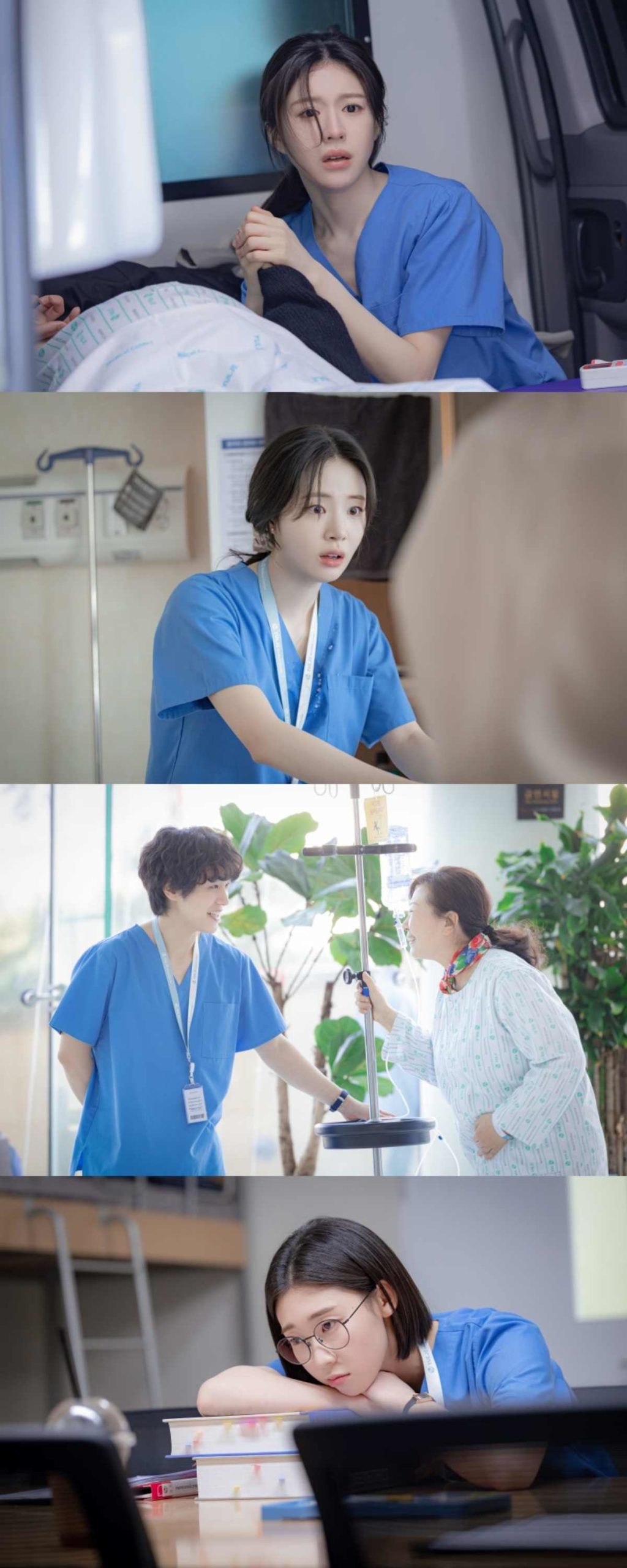
The drama featured a lineup of memorable cameos:
- Ra Mi-ran (Ep. 1)
- Ahn Eun-jin, Ha Yoon-kyung, Moon Tae-yoo (Eps. 2–3)
- Jung Kyung-ho, Jung Moon-sung (Ep. 4)
- Yoo Yeon-seok (Ep. 5)
- Jo Jung-suk, Jeon Mi-do, Kim Dae-myung, and others
These appearances, though brief, often delivered more emotion than the leads over an entire season—highlighting just how much this spin-off lacked in comparison to Hospital Playlist.
Ultimately, Resident Playbook had every advantage: strong brand recognition, a popular network, and an eager fanbase. But instead of carving out a unique identity, it relied too heavily on mimicking Hospital Playlist‘s tone and structure without reproducing its emotional depth.
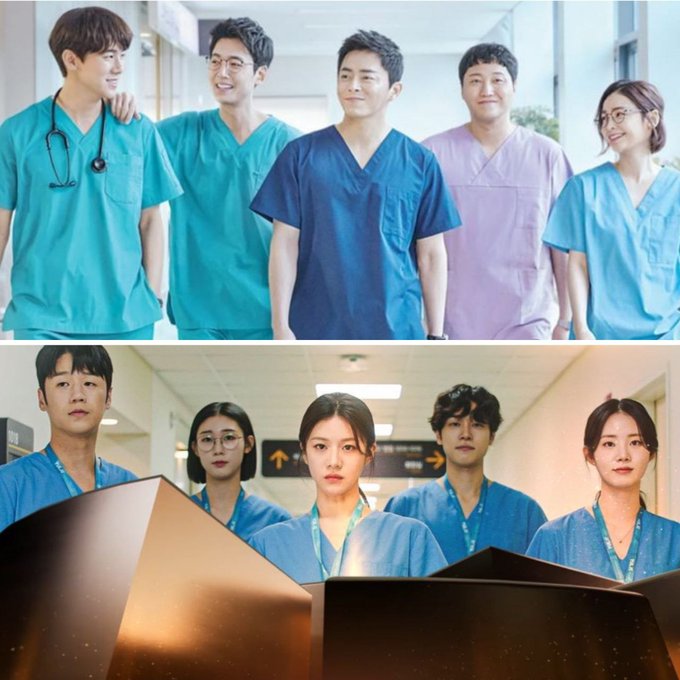
The drama chose safety over storytelling, filling episodes with soft dialogue and hollow warmth instead of real conflict, moral complexity, or human vulnerability. It looked like Hospital Playlist but never felt like it.





